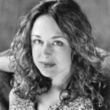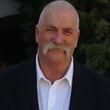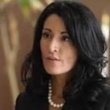Hope's boy: a memoir
Description
More Details
Excerpt
Similar Titles From NoveList
Similar Authors From NoveList
Published Reviews
Publisher's Weekly Review
In this memoir of a decade spent in foster care, Bridge illuminates the horrors of a system that, in its clumsy attempts to save children, he argues, all too frequently condemns them to physical and emotional abuse. The child of a teenage mother who divorced her abusive husband soon after Bridge was born, he watched helplessly as his mother disintegrated under the impact of isolation and poverty. At the age of seven, Bridge was dragged away from his mother, literally, by police and warehoused in an enormous California juvenile facility patrolled by armed guards. The state eventually transferred him to a foster family dominated by an obese, bullying Estonian woman who had survived imprisonment in Dachau as a child. At 17, as he prepared to leave foster care for college and freedom, Bridge finally had a reunion with the mother he never stopped missing. In his narration of this unending nightmare, Bridge shows particular skill in portraying his isolation and the defenses he constructed to survive it. He also has a talent for grotesques, particularly that of the monstrous foster mother who revisited the misery of her upbringing on her foster children. Bridge's obsessive focus on his loneliness and his two "mothers" is so intense that a more balanced picture of his life fails to emerge and his attachment to another foster child remains unexplained. Yet Bridge, a Harvard Law School graduate who has devoted his career to children's rights, has provided remarkable insights into a dark corner of American society. (Feb.) (c) Copyright PWxyz, LLC. All rights reserved
Library Journal Review
In this memoir of a dysfunctional upbringing, Bridge, a Harvard Law School graduate, successfully employs the technique of first presenting an event of the near present, then going back in time to disclose the details of his childhood. As he relates in the prolog, he was involved as a lawyer in a case against an Alabama facility housing teenagers in state care who, though they were not juvenile delinquents, were being treated as such. Knowing that Bridge managed to rise above his unfortunate childhood helps the reader cope with the narration that follows. Bridge first lived with his grandmother until the age of five, while his parents were in prison for check fraud; then he spent two years with his mentally deranged mother before landing for 11 years in foster care, where he endured meanness and loneliness. He kept to himself at school and excelled at his schoolwork, entirely unbeknown to either his foster parents or the foster-care system until, at the age of 18, Bridge won a college scholarship. He went on to attend law school, was a Fulbright Scholar, and later became the CEO/general counsel of the Alliance for Children's Rights. An inspiring account recommended for high school and public libraries.-Dorris Douglass, Williamson Cty. P.L., Franklin, TN (c) Copyright 2010. Library Journals LLC, a wholly owned subsidiary of Media Source, Inc. No redistribution permitted.
Kirkus Book Review
Life with a mentally ill mother was bad, but group homes and foster care were loveless and deadening. Now a lawyer advocating for children's rights, Bridge begins his memoir in Alabama, where he was participating in a lawsuit against the Eufaula Adolescent Center. An encounter with one of the center's brutalized, hopeless charges prompts memories of his own experiences of neglect and abuse. His mother tried her best, she later pathetically told him. An attractive, intelligent woman, she made a bad marriage, couldn't hold even the most menial jobs, dabbled in crime and after she lost her son was in and out of various institutions, penal and psychiatric. The author still visits her at the Metropolitan State Hospital--not so frequently as he should, he confesses. Although he retains a deep affection for the eponymous Hope (her middle name), his childhood with her was miserable. He witnessed her rape. He was knocked around when he wouldn't change the television channel for a man temporarily living with them. Mom took him along on a botched burglary gig. Los Angeles County eventually removed the boy to the not-very-nurturing foster care of the Leonards, who did little to encourage him, much to dispirit him. Nevertheless, Bridge emerged from this messy maze with a social conscience, a Fulbright Scholarship and degrees from Wesleyan University and Harvard Law School. The author doesn't fully explain how he transformed himself into a scholar, let alone a student popular enough to win a major school election. He mentions a few teachers who helped, a few books he read (Salinger's were favorites), but we get no real notion of what enabled his intellectual growth. In the closing pages, Bridge returns to Eufaula, making the grim point that protection for children in foster or state care has not improved since his own unhappy youth. A bleak history recounted with justifiably burning indignation, dampened by limp, soggy prose. Copyright ©Kirkus Reviews, used with permission.
Library Journal Reviews
In this memoir of a dysfunctional upbringing, Bridge, a Harvard Law School graduate, successfully employs the technique of first presenting an event of the near present, then going back in time to disclose the details of his childhood. As he relates in the prolog, he was involved as a lawyer in a case against an Alabama facility housing teenagers in state care who, though they were not juvenile delinquents, were being treated as such. Knowing that Bridge managed to rise above his unfortunate childhood helps the reader cope with the narration that follows. Bridge first lived with his grandmother until the age of five, while his parents were in prison for check fraud; then he spent two years with his mentally deranged mother before landing for 11 years in foster care, where he endured meanness and loneliness. He kept to himself at school and excelled at his schoolwork, entirely unbeknown to either his foster parents or the foster-care system until, at the age of 18, Bridge won a college scholarship. He went on to attend law school, was a Fulbright Scholar, and later became the CEO/general counsel of the Alliance for Children's Rights. An inspiring account recommended for high school and public libraries.—Dorris Douglass, Williamson Cty. P.L., Franklin, TN
[Page 74]. Copyright 2007 Reed Business Information.Publishers Weekly Reviews
In this memoir of a decade spent in foster care, Bridge illuminates the horrors of a system that, in its clumsy attempts to save children, he argues, all too frequently condemns them to physical and emotional abuse. The child of a teenage mother who divorced her abusive husband soon after Bridge was born, he watched helplessly as his mother disintegrated under the impact of isolation and poverty. At the age of seven, Bridge was dragged away from his mother, literally, by police and warehoused in an enormous California juvenile facility patrolled by armed guards. The state eventually transferred him to a foster family dominated by an obese, bullying Estonian woman who had survived imprisonment in Dachau as a child. At 17, as he prepared to leave foster care for college and freedom, Bridge finally had a reunion with the mother he never stopped missing. In his narration of this unending nightmare, Bridge shows particular skill in portraying his isolation and the defenses he constructed to survive it. He also has a talent for grotesques, particularly that of the monstrous foster mother who revisited the misery of her upbringing on her foster children. Bridge's obsessive focus on his loneliness and his two "mothers" is so intense that a more balanced picture of his life fails to emerge and his attachment to another foster child remains unexplained. Yet Bridge, a Harvard Law School graduate who has devoted his career to children's rights, has provided remarkable insights into a dark corner of American society. (Feb.)
[Page 39]. Copyright 2007 Reed Business Information.
































